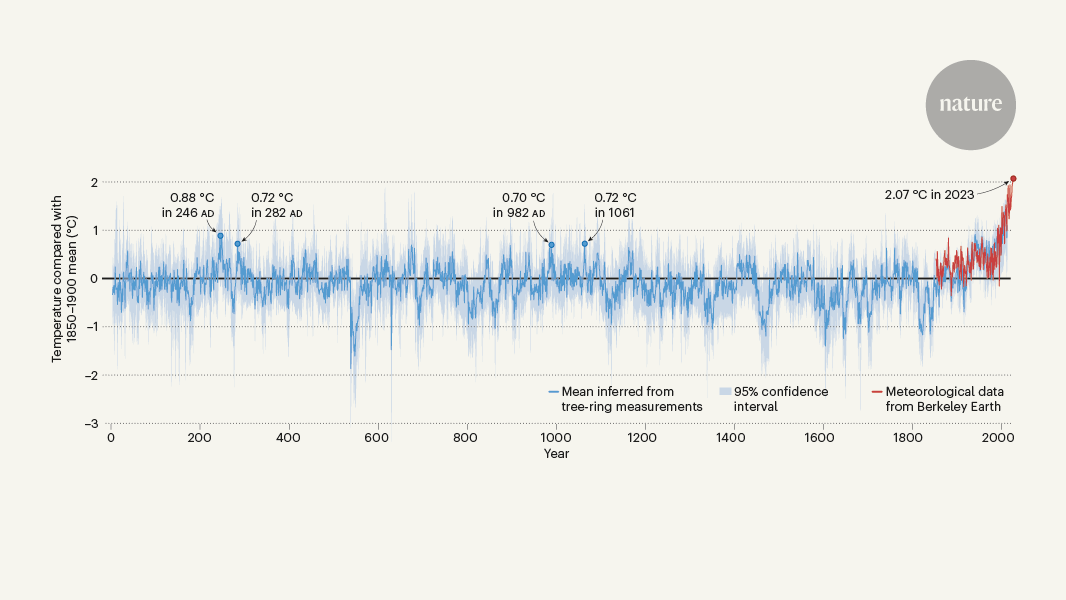Last Year's Summer Was the Warmest on Record in Over 2,000 Years
The content discusses the unprecedented global temperature records set in the previous year, with monthly temperature anomalies far exceeding historical data. This warmth was accompanied by extreme heat events in various regions, including spring heatwaves linked to wildfires in South America and exceptionally high summer temperatures across Southern Europe, China, and North America.
Heatwaves are identified as one of the deadliest natural disasters, leading to increased mortality, ecosystem stress, and reduced harvests. Extreme temperatures are also often associated with wildfires, which can release carbon into the atmosphere and potentially induce further warming.
The content highlights the concerning trend of climate change, as evidenced by the record-breaking global temperatures and the severe impacts of extreme heat events on human lives, ecosystems, and agricultural productivity.
Tilpas resumé
Genskriv med AI
Generer citater
Oversæt kilde
Til et andet sprog
Generer mindmap
fra kildeindhold
Besøg kilde
www.nature.com
Last year’s summer was the warmest in 2,000 years
Vigtigste indsigter udtrukket fra
by Gabriele C. ... kl. www.nature.com 07-03-2024
https://www.nature.com/articles/d41586-024-02057-6
Dybere Forespørgsler
